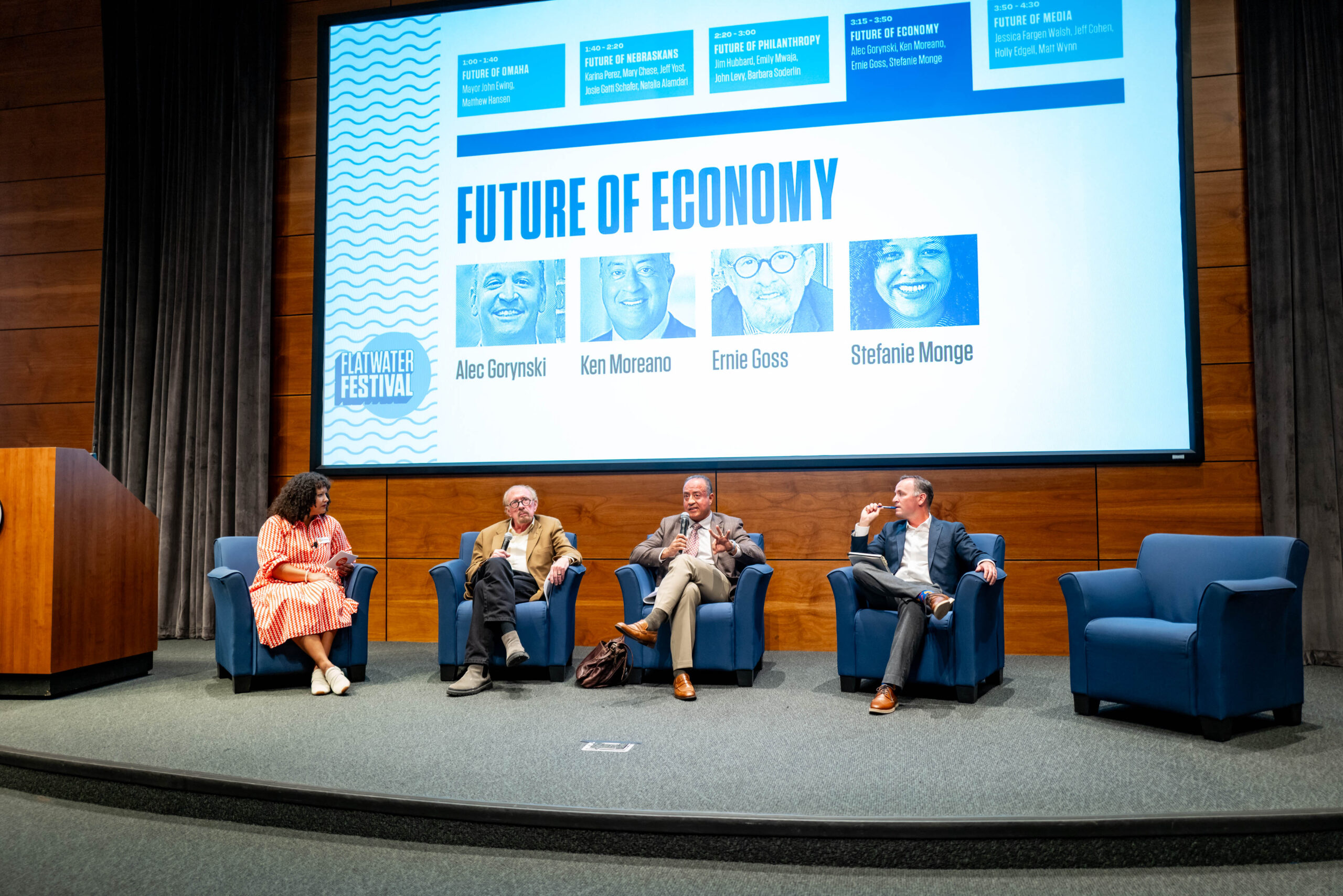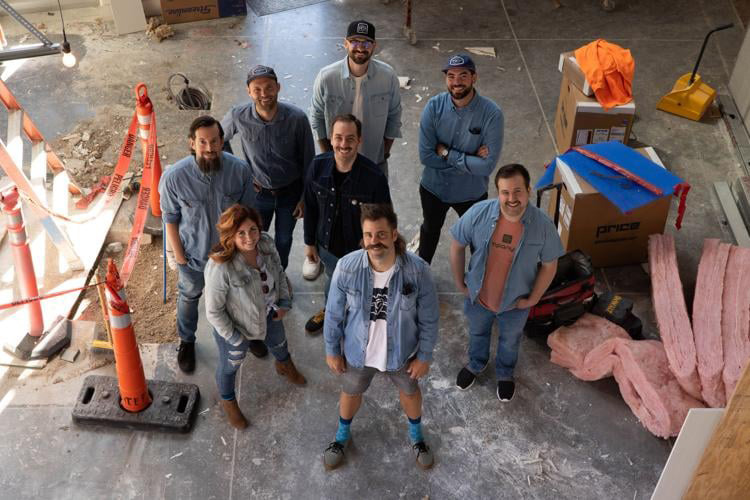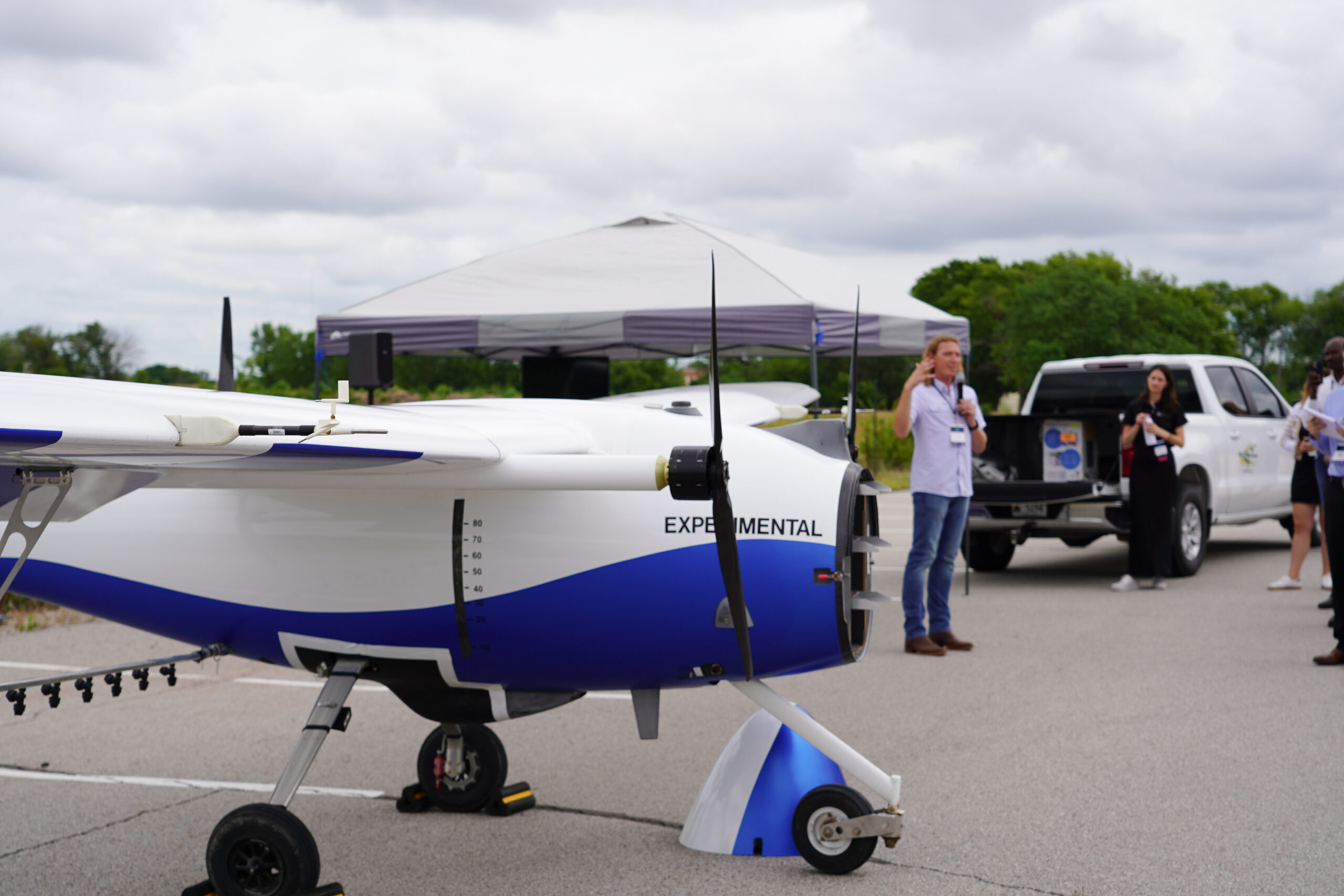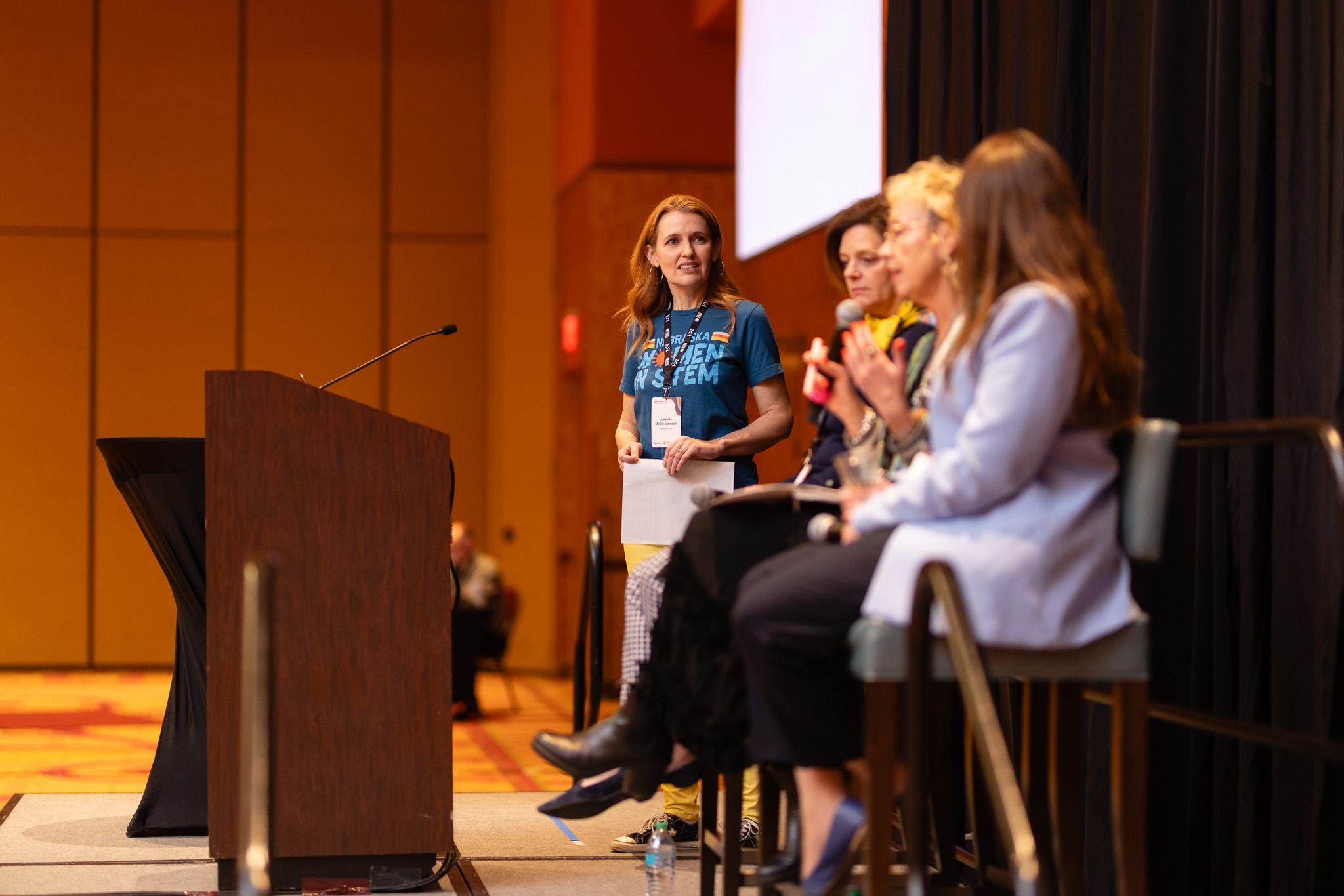The Omaha metro area has the potential to be a national business hub for artificial intelligence. But to get there, it must navigate the current Wild West of AI infrastructure, from lack of regulation and standards to demands for land and power.
“The bar we set is unique to our capabilities, our strengths,” said Ken Moreano, president and CEO of the Scott Data Center, speaking Wednesday on “The Future Economy” panel at the 2025 Flatwater Free Press Festival.
Omaha needs to focus on “adoption and exposure and engagement — not stretching for the largest return on investment, but being reasonable and leveraging the assets we already have,” Moreano said.
One challenge for those assets: having enough power, as AI is notoriously hungry for energy. By 2028, the data centers processing the models behind chatbots and other AI tools are projected to use up to 12% of the total electricity in the United States, up from 4.4% in 2023.
Meanwhile, power usage is also increasing across Nebraska industries. A 2025 Nebraska Chamber Foundation report warned that the state’s power grid is behind on addressing future energy needs.
“There is a huge increase in the electrification of manufacturing in particular,” said Alec Gorynski, the senior vice president of economic development at the Greater Omaha Chamber of Commerce. “That doesn’t eliminate our opportunities, but it just makes them more challenging because companies are looking for speed to market.”
Ernie Goss, an economist and consultant at Creighton University, called out what he sees as a hesitancy to invest in battery storage in Nebraska to help power needs. Battery storage is a way to save the power generated by solar and wind energy projects to be able to use it at night or when there isn’t much wind.
Goss mentioned working with a company trying to build a data center in Nebraska. As part of that project, the company wants to build battery storage, but the state has been resistant, he said. That may also be part of a larger bias against data centers over their local impact.
“I was told, ‘We don’t need data centers because they don’t provide enough jobs,’” Goss said. “I’m like, ‘Well, yes, but they provide a heck of a lot of property taxes.’”
To Goss, there’s a simple math to Omaha’s AI infrastructure: More power and receptivity to building data centers means more incentive for companies to want to work with and in Nebraska.
But Moreano and Gorynski cautioned that things might not be so simple. First of all, many companies don’t have a good sense of what they actually want to do with AI, let alone how much usage they need.
“We deal with many Fortune 500 companies, and they walk in the door saying, ‘Well, we need 50 GPUs or 100 GPUs,’ and then we actually get involved in their business (and) they need two or four,” Moreano said. “The workloads that they look at are very, very small, especially when you look at the infrastructure they’re currently using.”
Second of all, for enterprise usage, massive commercial data centers with AI in the cloud doesn’t make sense to use. That isn’t necessarily the most secure option, and Moreano sees the future in smaller, specialty data centers like Scott Data Center that are more reliable for storing and using sensitive internal data.
Gorynski said the Greater Omaha Chamber is working with local companies to figure out how to best leverage AI, and partnering with Scott Data Center to help those companies go from ideas to practice.
It’s important work, in part because AI could very well negatively affect Omaha’s companies.
“This will change our economy,” Gorynski said. “We don’t know exactly the manner in which it will change our economy or the full extent of it, and I think we have several industries here that are susceptible to the way it will change our economy.
“So I view (AI) as a risk, and I view it as, the opportunity is to ensure that our companies are adopting this to protect their presence in the region.”
Lev Gringauz is a Report for America corps member who writes about corporate innovation and workforce development for Silicon Prairie News.



